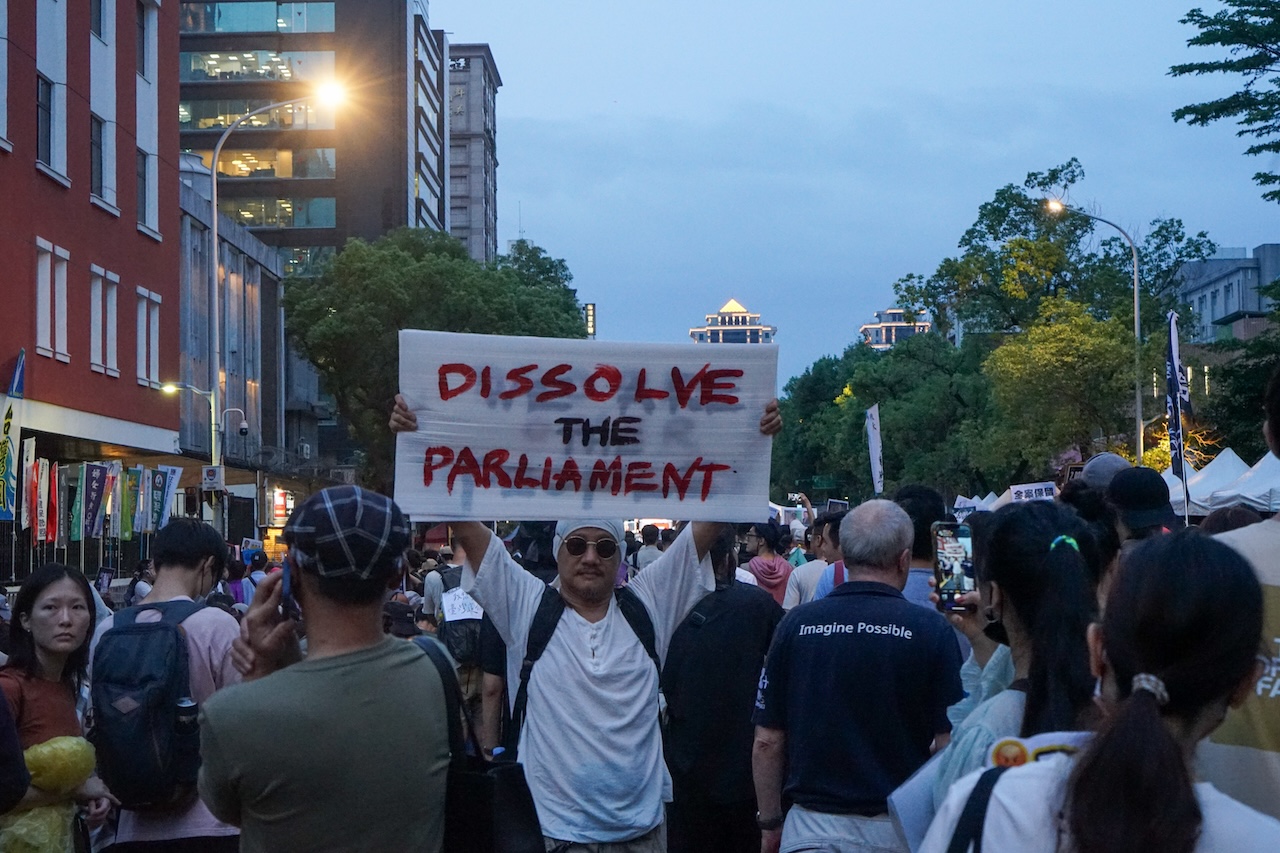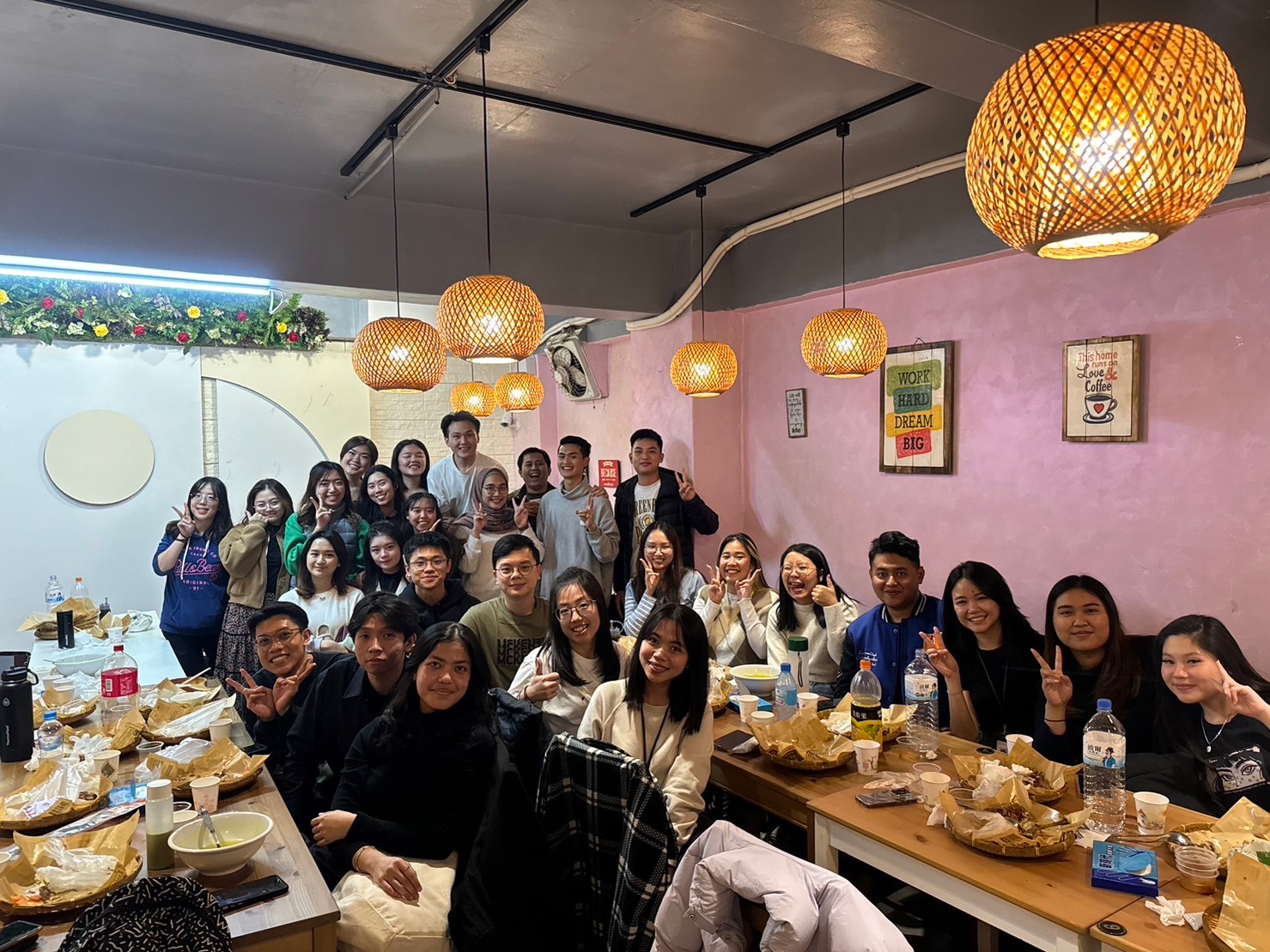Author Chris van Laak
Photographer Chris van Laak
Taiwanese lawmakers are occupied with two different things these days. These two things are actually one and the same, but depending on who you ask, they are also totally different.
Those of the KMT and TPP, which together hold a legislative majority, say they’re working on legislation to ensure that “fraud and corruption cases can be exposed.” Meanwhile, those of President Lai Ching-te’s (賴清德) DPP say the other two parties are working on an anti-democratic power grab, ostensibly at the behest of China.
The about 100,000 protesters who took to the streets in Taipei on Friday last week (of whom I was one) largely live in the same reality as the DPP, even though most of them, including myself, do not pledge allegiance to any of the parties involved.
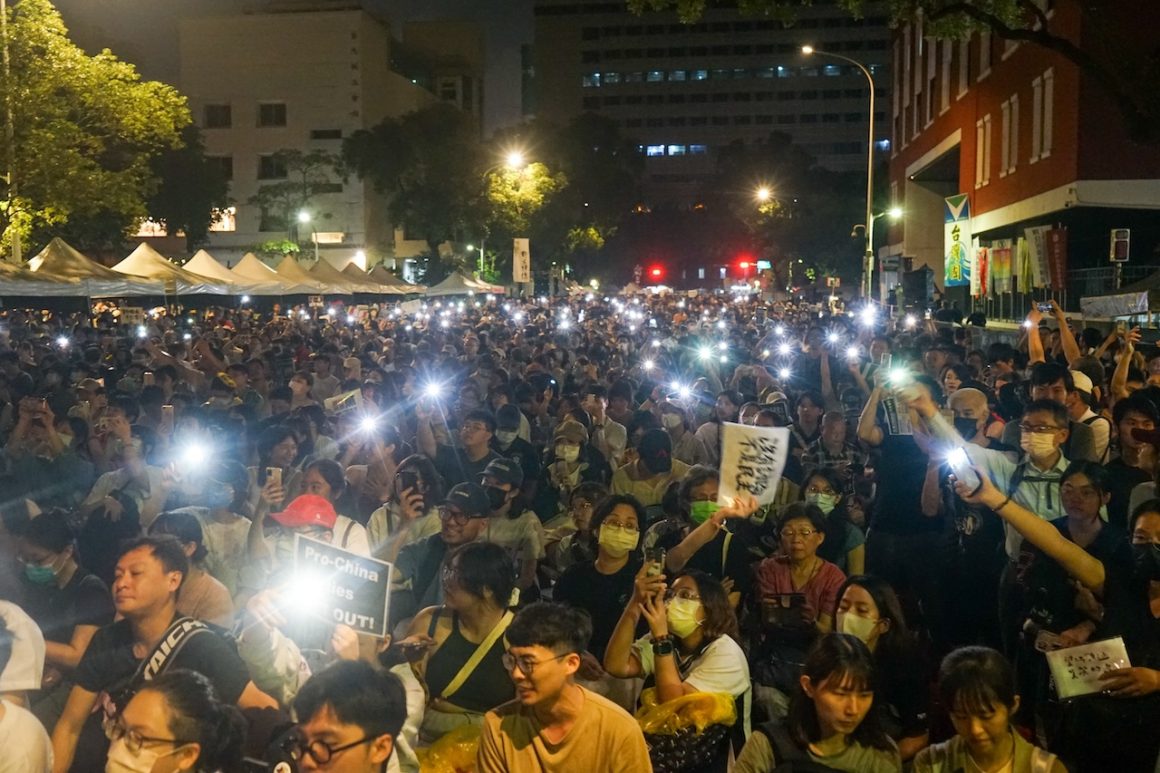
The placards protesters were carrying made clear where they stood on the issue though. They said things like “Pro-China parties get out,” and numerous speakers who took the stage between noon and midnight alleged in their slogans that the KMT and TPP are not acting in the name of the Taiwanese people.
The nitty-gritty of the proposed law was hardly discussed though, neither at the protest nor inside the legislative chamber, where a second reading of the bill was held.
Taiwanese (as well as foreign residents like myself) deserve answers, foremost to the question “What the heck is going on in Taiwan?” And the answers should go deeper than the slogans.
The background
It all started on Tuesday last week with a physical fight in the legislature—a common occurrence in Taiwan that is nonetheless disgraceful. The occasion was the first reading of the legislative procedures bill.
After the pro-independence DPP won the presidency in January, but lost the legislative majority it previously held, such a bill was to be expected. The China-friendly KMT, as the strongest party in the legislature, was expected to draft a bill seeking to hold the president’s executive branch in check. It indeed has every right to do so.
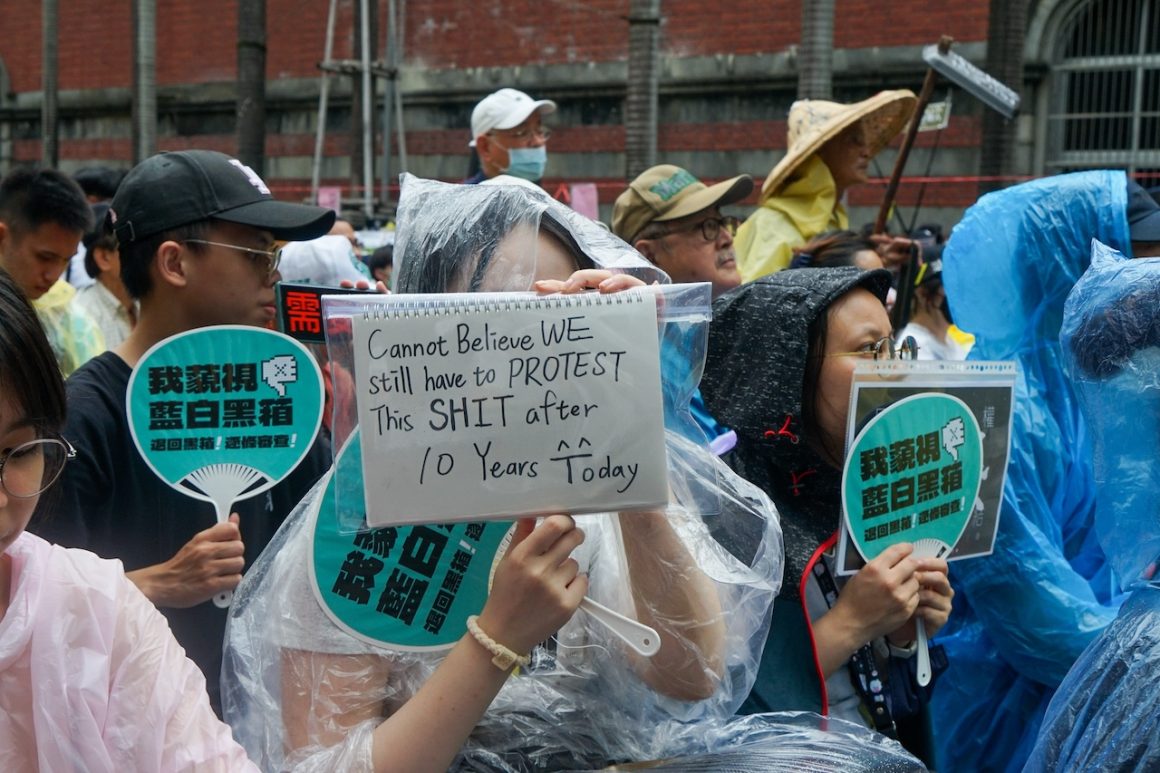
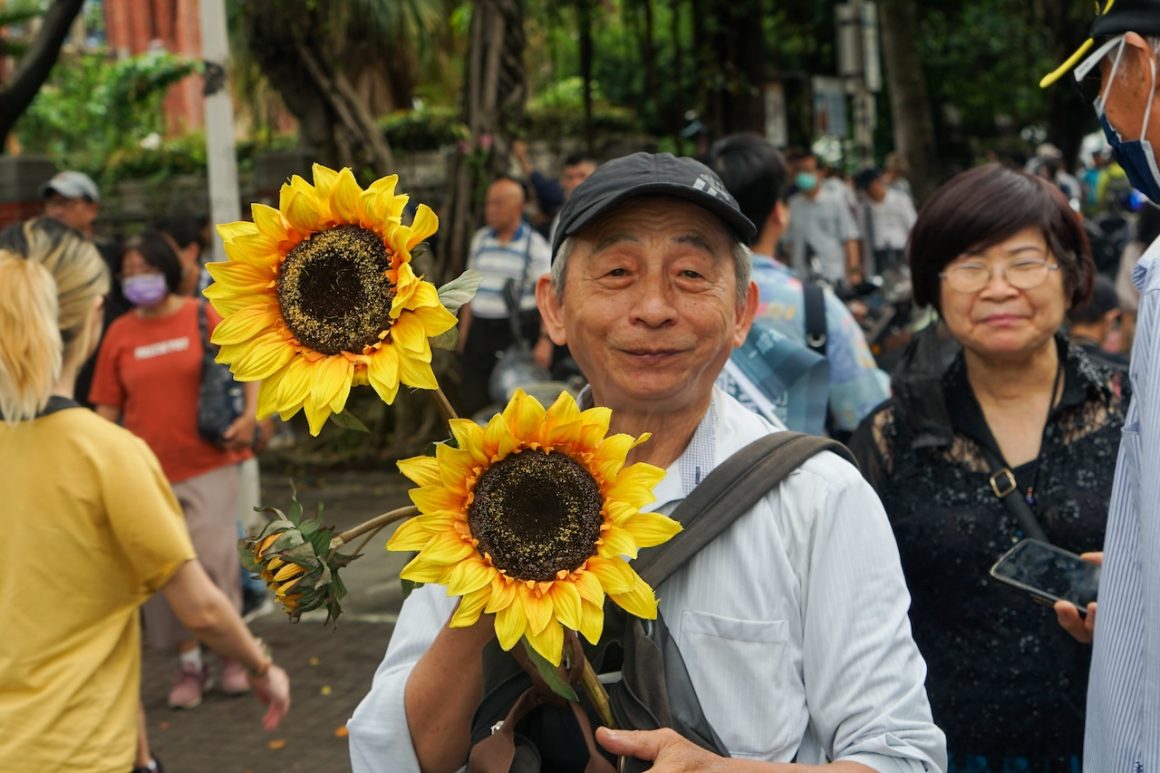
Over 10 years ago, the Constitutional Court ruled that the legislature has the implicit right to, for example, hold hearings to investigate whether the executive is staying within its constitutional boundaries. However, as the parties of Lai’s two predecessors, Ma Ying-jeou (馬英九) of the KMT and Tsai Ing-wen (蔡英文) of the DPP, enjoyed legislative majorities throughout their respective presidencies, they never sought to enshrine this right in a procedural law—until now.
No discussion allowed
The situation that unfolded in the legislature on Tuesday smelled fishy from the start, when the KMT and TPP broke with established norms and tried to pass the bill without inter-party discussion. Their lawmakers sought to prevent access of the opposition to the speaker’s lectern, and they added numerous amendments to the proposed bill in a haphazard fashion and voted on them before anyone had the chance to read them.
Some lawmakers ended up in hospital, much to the outrage of their supporters, but all of them turned out to be uninjured.
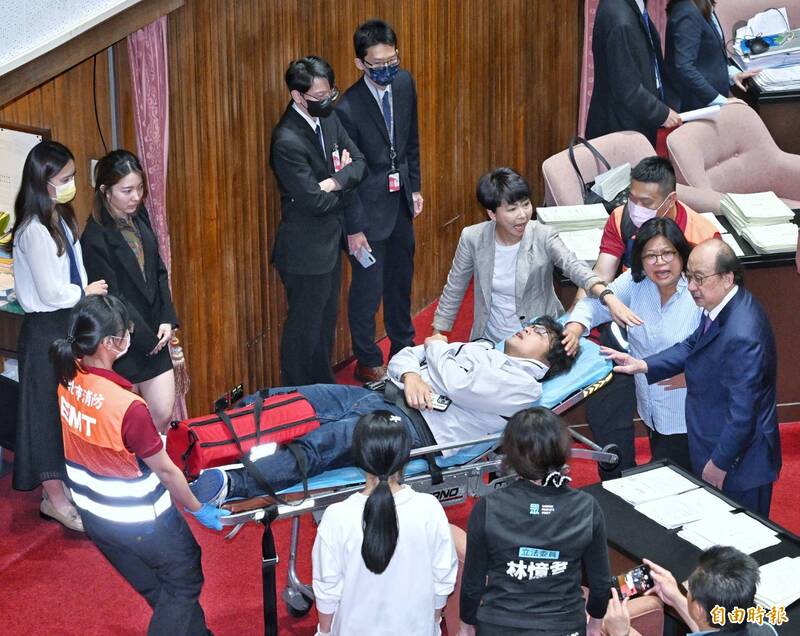
(Photo Credit: The Liberty Times)
Unsurprisingly, the main point of the protest movement that started the same day was that “no discussion” meant “no democracy.”
It is more interesting, however, to look at what the murky process tried to hide. Firstly, the bill is extremely poorly crafted, or, one might also say, crafted with an ulterior purpose in mind. Some of its provisions are even, in the words of Academia Sinica political scientist Nathan Batto, “cartoonishly unconstitutional.”
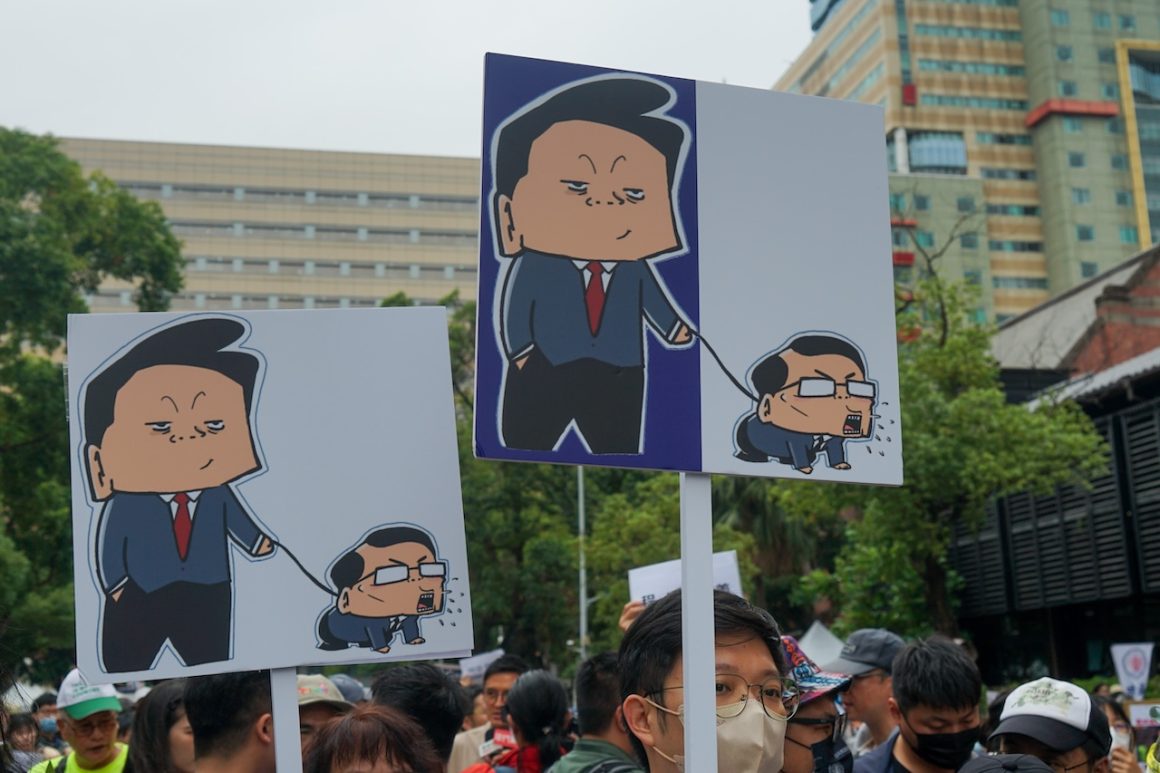
This includes a clause that allows the legislature to summon senior government officials for questioning, and if lawmakers are not satisfied with the answers they receive, or if the officials cannot answer without first clarifying what the question means, they can charge the officials with “contempt of legislature”—a crime that the bill doesn’t further define, but that would carry a jail term of up to three years. How the charges would be enforced is also unclear, but KMT figures have said they would explain that later—whenever that would be.
Political activists could be summoned, too, as could, for example, defense contractors who would then have to reveal sensitive details to lawmakers such as the KMT’s Ma Wen-chun (馬文君), who has been accused of leaking military secrets to Beijing.
The KMT and TPP might call such an event an “anti-corruption” hearing; I would call it a political show trial.
A third reading of the bill is scheduled for tomorrow, and another protest in front of the legislature is planned.
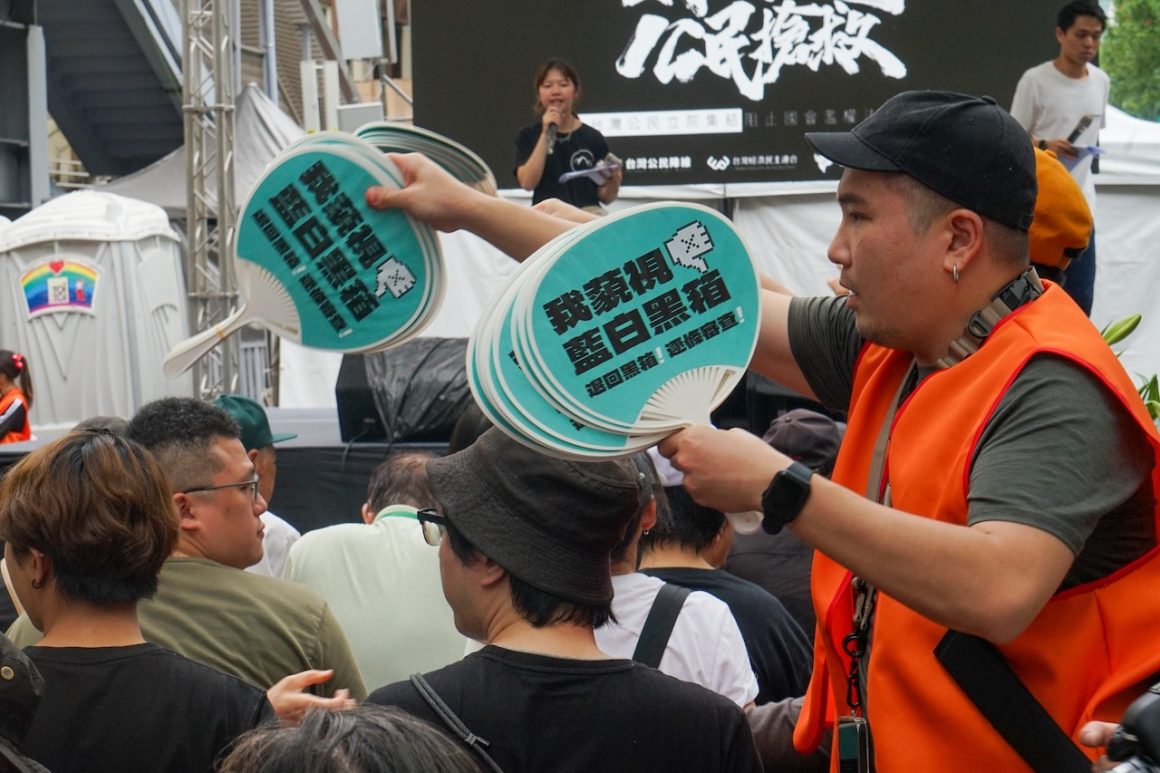
Is this the end of Taiwanese democracy?
Luckily, it is not. Hopefully.
If the bill is passed in its entirety, Lai would not have the authority to flatly deny signing it. Instead, the DPP-led executive branch could send it back to the legislature, saying it is impossible to enforce. The legislature would then have to vote on it again, but the difference would be that the whole wording of the bill would be out in the open. Public pressure on KMT and TPP lawmakers would increase.
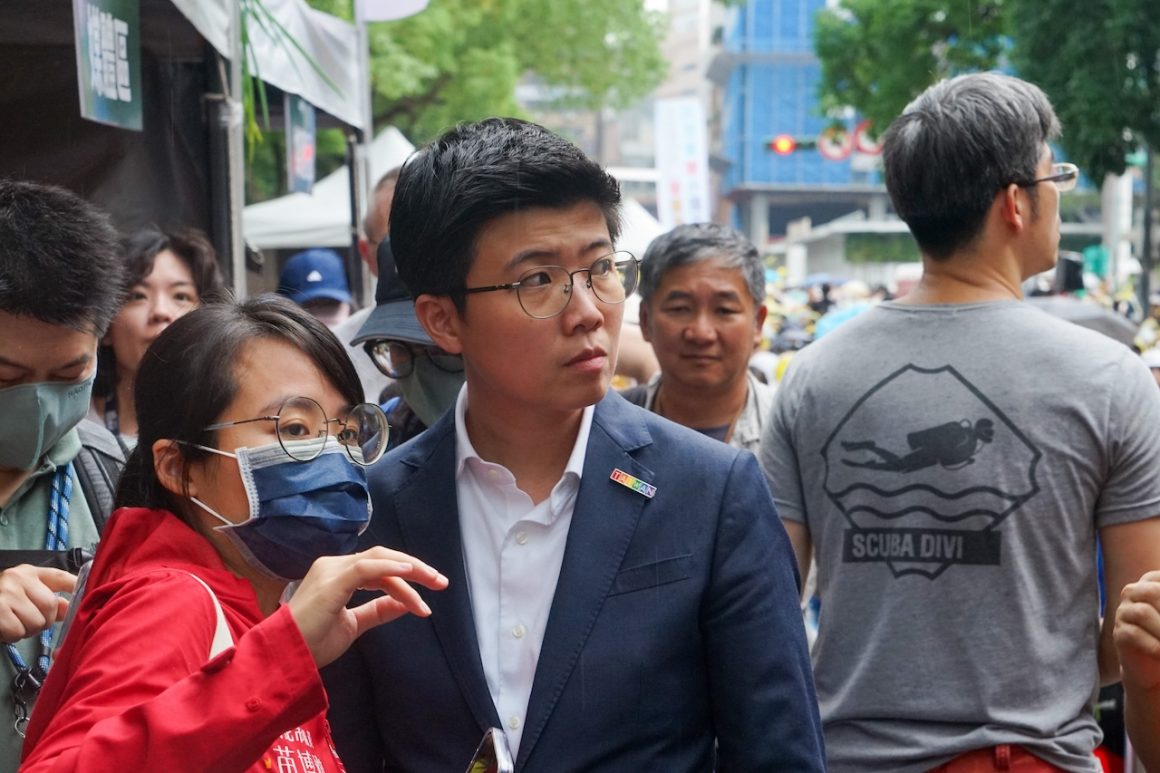
If they pass the bill a second time, Lai would have to sign it without further delay. It would become part of the law of the land and it could be used and abused until the Constitutional Court voids it—which is the most likely scenario.
To speed up the process, DPP lawmakers could petition the Constitutional Court for a “preliminary injunction” to halt the law’s application. One-quarter of the legislature would be enough for that move, but the whole procedure might still take months or even years.
Most likely, however, the disgraceful law will be off the books eventually, without ever addressing any real corruption problem—and even the KMT and TPP know it.
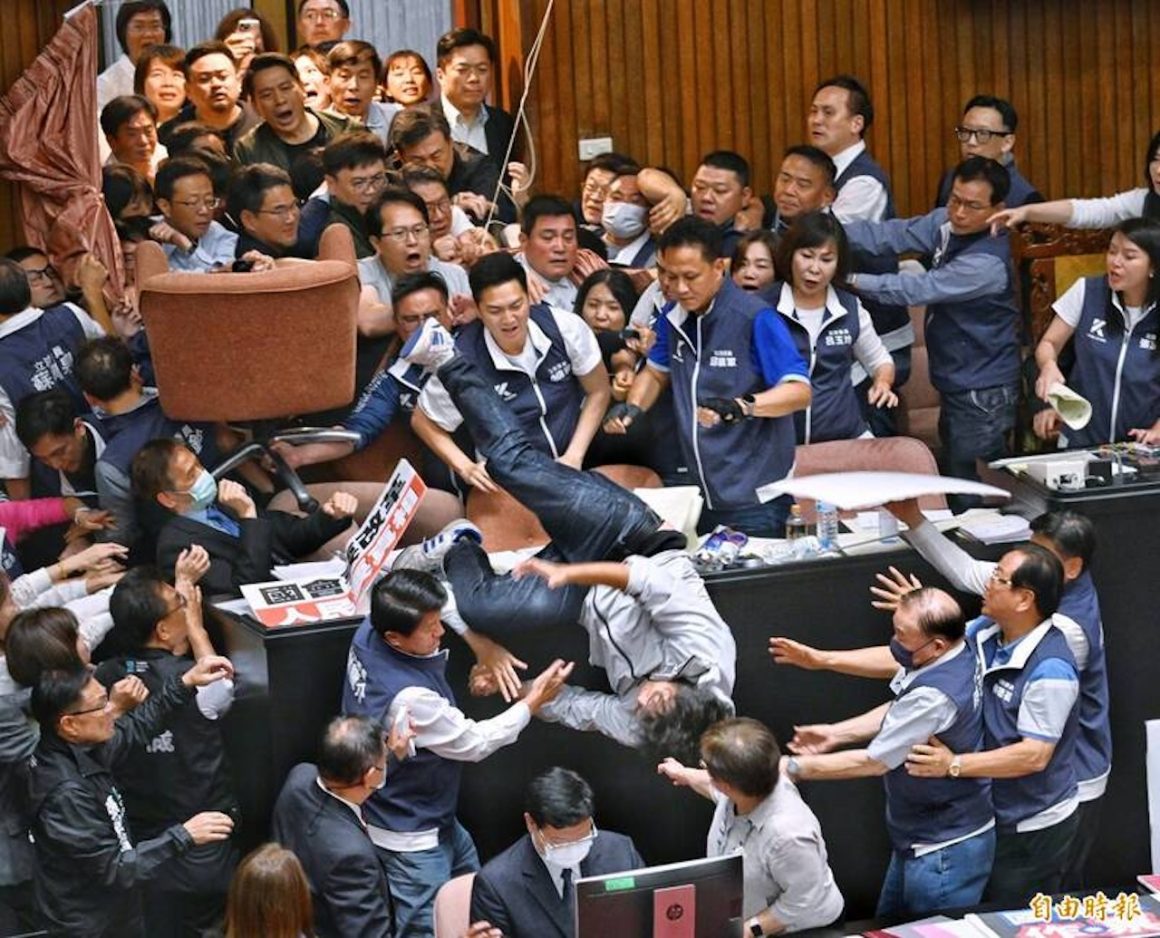
The whole process, including the physical fighting in the legislature, is largely a publicity stunt. The message that the KMT and TPP seek to send is that the DPP is corrupt, shirks accountability and is full of violent thugs. Meanwhile, the DPP and its lawmakers (who accepted the invitation to the fight without hesitation) seek to send the message that the KMT and its junior partner are Chinese operatives that seek to undermine Taiwan while being—yes, that too—violent thugs.
It’s all a question of perspective. Which accusations are true, or truer, doesn’t matter all that much; what matters is that the episodes evoke strong emotions on both sides of Taiwan’s highly polarized political spectrum. They help drum up support and, more importantly, vilify the other side.
After the dust has settled, both sides will likely claim victory; both sides will likely be able to drive home their respective message to those who want to hear it. Taiwan’s democracy will survive, but it will bear the scars of an unnecessary episode of pointless chaos.

